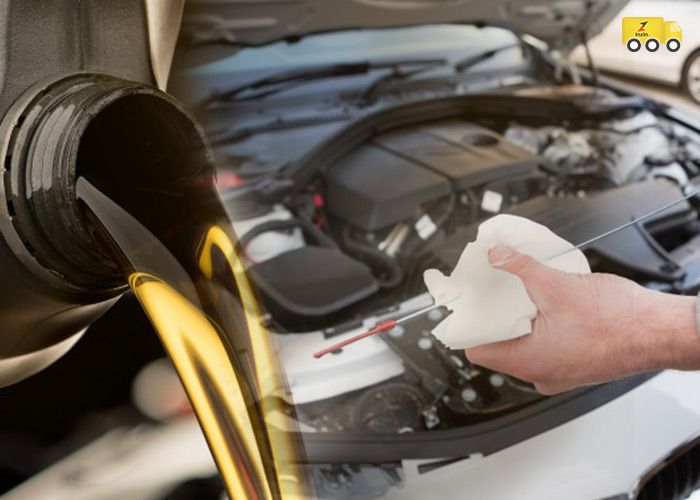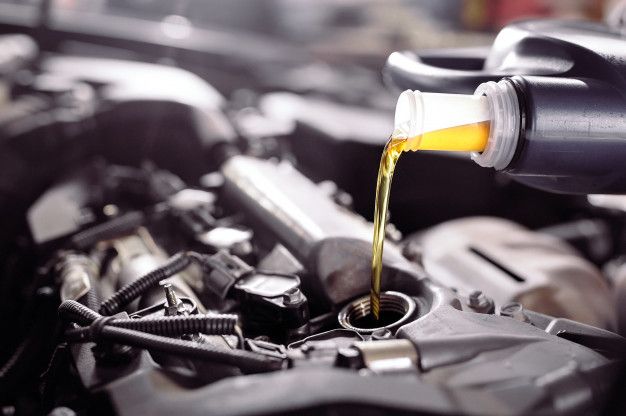When it comes to mixing oil brands, there are a lot of different opinions: Is it safe to mix a synthetic with the conventional, or what about mixing a 5w30 with a 20w50? Today, let’s spend your time finding the answer to a question: Is it ok to mix oil brands in your vehicle, and whether it will hurt the engine?
Contents
Are all The Engine Oils The Same?
As we all know, car engines have lots of moving parts. As these parts operate and rub against each other. The force of friction creates heat. Oil lubricates your engine to reduce friction and absorb heat. We all accept that engine oil is very crucial in your vehicle. But can we use any oil brand for the car and all the engine oils have the same features?
Some motorists assume that: “Surely engine oils are all the same?” This is the wrong answer. The truth is there not only are oils different, but they also vary in viscosity and additives that can significantly affect the performance of your engine. On the market, there are 4 main types of motor oil:
- Conventional oil
- Synthetic oil
- Synthetic blend
- High mileage oil
Depending on the features of the car engine, you will choose the suitable viscosity for your vehicle. Don’t forget to refer to the manufacturer’s recommendations. For example, if you have a turbocharged engine. You’ll need specially formulated motor oil. It’s able to keep up with extreme pressure, heat, and RPMs. In this situation, you definitely shouldn’t be using conventional oil. The varnish is a killer when it comes to turbocharged engines.
>> Related post: Is Engine Oil The Same As Transmission Oil? Let’s Find Out!

Is It Ok To Mix Oil Brands
Can use the different brands of oil in your vehicle hurt the engine? The short answer is “No” but the long answer is “Yes”. Each brand of oil has its own formulation with different amounts of additives. And what will happen when you mix those, you can potentially cause the “additive clash”. Is this going to be fatal to your engine? Absolutely not, there won’t be any noticeable problems with your engine when you’re mixing up mainstream oil brands. Your engine will work fine, but what it could possibly do is slightly lower the performance of your oil or reduce the lifespan of the engine oil.
Sure, you had an answer to “Is it bad to mix oil brands?”In terms of engine protection or engine oil, mixing oil brands doesn’t have much impact on your car engine. However, different oils with a variety of base stocks and additives can shorten the engine oil life. If you really want to maximize the performance of your engine and the oil. We recommend you should stick with a brand you trust. It’s not a good idea to mix the different oils in your engine. When you want to mix oil brands, you should make sure that the different oils have the same viscosities and API ratings.
Criteria to consider when choosing to buy engine oils?
To ensure stable operation and longevity of the engine, one of the prerequisites is to choose the right lubricant. When choosing to buy engine oil, there are two basic criteria that you need to understand and care about:
SAE ratings
Engine oils are similar to edible oils with an undesirable property in that the viscosity always changes with temperature, that is, it will thicken when the temperature is low and will thin when the temperature is increased. Based on this property, SAE stipulates the viscosity grade SAE represents the viscosity-dilution of lubricants such as SAE 30, 40, and 50.
On any engine oil, there are SAE ratings. For example: SAE 5w-30, 10w-40 …. In the SAE index, there are 2 parameters that need attention:
- W stands for “Winter” indicating the ability to start when it is cold.
- The parameter behind the letter W represents the viscosity-thinness of the lubricant such
Viscosity is a key to determining which engine oil will be right for your car. Dilute oil won’t sufficiently lubricate the engine parts as it heats up. The climate in the areas where you live is very important to consider. Currently, most car engines use multigrade oils, which can be used in both winter and summer. This oil has passed the SAE specification for liquid oils at low temperatures, as well as thicker oils at high temperatures.
You need to know what is the API
API is the standard used to classify the quality of gasoline and diesel engine oils. The quality levels of API for gasoline engines are SA, SB, SC, and… to the latest level, API SN. The API for Diesel engines is denoted CA, CB, CC, etc. to the latest level, it is API CK. In particular, the last letter is used to distinguish the levels and is arranged alphabetically, the later letter represents the higher level. For example, API grade SN is higher than SM, CK is higher than CJ, etc.

FAQs
Can you mix different weights of oil?
“Oil weight” what does it mean? It means the viscosity of your engine oil. It represents the flow rate of the oil at a particular temperature. Whether you can mix the different oil weights or not? The truth is: it doesn’t recommend mixing the different oil weights or different viscosity in your engine. Several lubricating grades are compatible and miscible, as long as they belong to one brand of engine oil. However, doing so creates a new viscosity that is not like the base oil in the engine or the original oil added.
If in a short time there will not be any unusual problems with your engine however in the long term mixing different weights of oil will be a threat to the life of the engine. So what will happen If you have 5W30 and 10W30 mixing together? As we can see because of the same viscosity the result might be better when mixing SAE 20 and 30 together. However, this is only fine when you need to add more oil to the engine. And it’s not an ideal situation when you mix oil brands when a full oil change.
Mixing conventional and synthetic oils: Is it Ok?
Since they are all made from crude oil and differ in purity, the question “is it possible to mix synthetic with conventional oil?” has been set. There are 2 flows of opposing opinions that this is possible and not possible. What’s the answer? There’s no danger when you mix conventional oil and synthetic together. However, conventional oil will lose the superiority of synthetic oil and reduce its performance. The composition of all engine oils will include base oils and additives. It can be said that synthetic and conventional oils include compatible components only those in higher quality synthetic oils.
>> Read more: The Difference between Synthetic Oil and Conventional Oil
Can you mix motor oils when topping up a car?
The best thing you can do when your engine oil is low is to add the closest types of oils to the old oil your car is using in case you do not have the oil specified by the manufacturer available. It means that you can absolutely mix engine oils when topping up a car but of course, it will not give you full performance.
Final Thoughts: Is It Ok To Mix Oil Brands In Your Car?
To make the car engine more durable and smoother, you should pay attention to the lubricating oil for the car. In addition to choosing suitable engine oils for the engine (petrol or diesel), you also need to choose the right viscosity for that engine type, so you can optimize the capacity of the car. Hopefully this article with a short sharing about the problem: can you mix oil brands? Carfromjapan partly helps you to choose and decide the right lubricant for your “love car”. Wishing you many safe miles!



